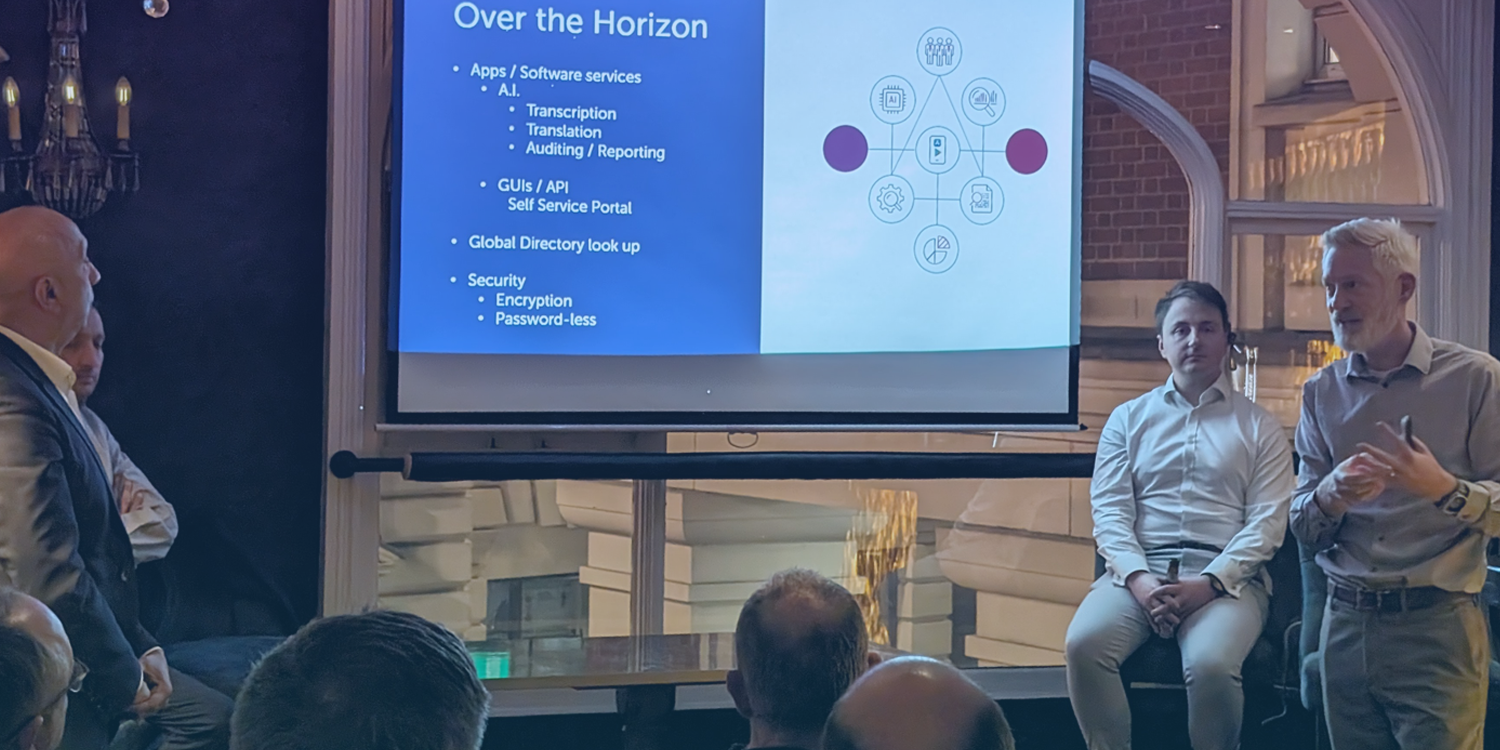
Reflecting on the historical trajectory of Artificial Intelligence (AI), from its early roots in complex algorithms to the sophisticated machine learning models of today, it becomes evident that AI's journey is intricately woven with human innovation.
From Larry Page and Sergey Brin's groundbreaking PageRank algorithm at Stanford University to pioneers like Frank Rosenblatt, Allen Newell, and Arthur Lee Samuel, who laid the foundation for machine learning, AI's evolution has been shaped by visionary minds.
In this blog, we dive into the current landscape of AI in financial services, unravelling how this transformative technology is meeting business needs, reshaping trading practices, and propelling us into an era where AI is not just a tool but a strategic ally in the world of finance.
Speakerbus' Ashley Francis discusses his views on this exciting new technology and how we see AI & Machine Learning enhancing the Fintech space.
Real World & Alexa
While taking a break from researching this blog on Artificial Intelligence and Machine Learning, I heard my eight-year-old son asking Alexa if she would marry him.
This was his tenth time of asking her as he was trying to remember the questions and correct answers to feedback to get over the next hurdle. I guess Amazon will make him wait until he is at least thirty...works for me!
It turns out Amazon's Alexa has received over 1 million marriage proposals and there are more than 8 billion messages exchanged on Facebook Messenger every month. With the explosion of conversational assistants & virtual AI's and even girlfriends or wives - how close is too close when it comes to our digital helpers?
A Short History Lesson
Now, this might age me, but in the earliest days of search engines, in 1996, Larry Page and Sergey Brin developed PageRank at Stanford University as part of a research project around a new kind of search engine. Looking back today, I had the realisation that this not-so-simple algorithm was using AI. So back in June 2000, when it was announced that Google would become the default search engine provider for Yahoo, one of the most popular websites at the time, we were all happily embracing AI as a workflow enhancement tool.
Today, PageRank is not the only algorithm used by Google to order search results, but it was the first algorithm used by the company, and it is the best known.
Google used the PageRank algorithm to determine a website's relevance by the number of pages and the importance of those pages that linked back to the original site.
It's also worth sparing some time for just a few entrepreneurs who pioneered the progression in the field, as without them, it may have taken a while longer to get to the Robotics, Natural language processing (NLP) and Internet of Things (IoT) so prevalent in our technology today.
Frank Rosenblatt who in 1958, used an IBM 704 (5-ton computer) to perform a demonstration of "perceptron" using punch cards.
Rosenblatt wrote, "Yet we are about to witness the birth of such a machine – a machine capable of perceiving, recognising and identifying its surroundings without any human training or control."
Allen Newell, who in 1954, described a running computer program that learned to recognise letters and other patterns". With this in mind, Allen, after a couple of months, wrote in 1955 The Chess Machine: An Example of Dealing with a Complex Task by Adaptation, which "outlined an imaginative design for a computer program to play in humanoid fashion".
Arthur Lee Samuel, who in 1959 pioneered the field of computer gaming and artificial intelligence. He popularised the term machine learning in 1959. The Samuel Checkers-playing Program was among the world's first successful self-learning programs and, as such, a very early demonstration of the fundamental concept of artificial intelligence (AI).
What About Today?
In November 2023, the UK's prime minister, Rishi Sunak, invested heavy diplomatic capital in convening global leaders, tech executives, academics and civil society figures at Bletchley Park in Milton Keynes, Hertfordshire, the famous base for the Second World War's codebreakers.
He aimed to produce an international declaration to address risks with the technology, as well as a multilateral agreement to test advanced AI Models. He succeeded by signing an international declaration that recognised the need to address risks represented by AI development, supported by more than 25 countries and the European Union.
Behind all the headlines of AI wiping out humanity – terminator style, on the surface, it feels the world is on board with keeping a close eye on AI, with France agreeing to host the next full-blown AI safety summit in 2024 – guaranteeing that Sunak's initiative will live on.
It leaves me with a question, do we trust this progression and innovation to governments or tech leaders, and do their goals and objectives align?
So, How Exactly are Business Needs Being Met by AI?
Today, in financial services, including trading, AI is being used to automate the writing of financial reports, removing the risk of errors in manual writing and ensuring accuracy, consistency and compliance.
AI and Machine Learning (ML) are also perfect for analysing and processing large amounts of data faster than humans, identifying patterns and flagging them to your specialised teams before they become a business risk.
For example, our Cadence compliance recorder, which utilises the LiquidVoice platform - uses AI to precisely label recordings, enhancing search and replay capabilities through Natural Language Processing (NLP) technology. This enables accurate and real-time transcription of speech in both voice and video recordings.
Meanwhile, forthcoming Speakerbus development initiatives also leverage the advantages of AI. Through OpenAI's Natural Language Processing, the development team has showcased the creation of live captions and real-time language translation. As we move forward with these initiatives, AI-driven features will soon be integrated into upcoming solutions.
So, if AI can help Netflix predict which movies you will like or run a decent Google search, why shouldn't it help traders better predict bond prices?
Using AI's ability to spot patterns with a faster, lower latency response makes sense than a human trader might.
We at Speakerbus predict that AI in trading will increase in usage and continue transforming the trading space.
Let’s Talk
At Speakerbus, we understand financial markets and their distinctive needs, so by partnering with us for our exceptional cloud services, we emerge as a strategic choice, guaranteeing seamless cloud integration, expert navigation of trader voice complexities, and ongoing support.
Our SONANCE compliance offerings from certified compliance partners are embracing Machine Learning and Artificial Intelligence to enhance regulatory workflows.
With Speakerbus as a trusted ally, clients can embark on their cloud journey confidently, fostering a resilient and innovative technological foundation for clear collaboration and sustained success.
If you’d like to learn more about how Speakerbus can empower your firm, head to our solutions page or get in touch with our experts today.



